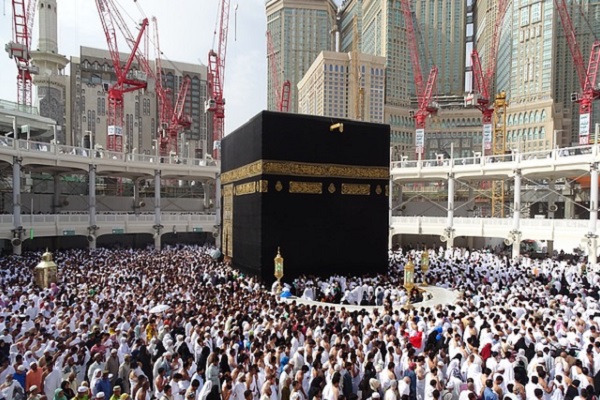
The Pilgrimage to Mecca from a Woman’s Perspective
- By Kelly Frazier --
- 20 Sep 2016 --

How does the female Muslim pilgrim fit into the Hajj religious pilgrimage?
The annual Muslim pilgrimage to Mecca, the “Hajj,” sees a massive gathering of Muslims at the holy place. This gathering is a meeting point for Muslims from all ethnic groups, countries and cultural backgrounds. Hajj is a religious journey that every Muslim, male and female, has to undergo at least once in his or her lifetime. In a religion that non-adherents view as being highly patriarchal and discriminatory in terms of gender, how exactly does the woman pilgrim fit in this religious obligation?
The Pilgrimage to Mecca from a Woman’s Perspective[/tweetthis]
Muslim scholars note that pilgrims of both sexes are given equal rights in the Hajj. However, certain differences do exist, which scholars note, are in place to protect women and not to suppress them. For one, a woman pilgrim has to be accompanied by a “Mahram,” a male Muslim partner. Without a Mahram, the pilgrimage of a woman is not considered valid. In fact the Saudi government does not allow women below the age of 45 to undertake the pilgrimage if they do not have a male guardian. Exceptions are made for women over 45, in which case they can do the Hajj accompanied by an older woman.
In all other ways men and women are treated fairly equal. It is interesting to note that while in Muslim places of worship everywhere in the world separate spaces are allotted for worshipers of either sexes, the same is not true of Hajj. During the pilgrimage, men and women are allowed to roam freely together. This includes going around the “Kaaba” seven times, throwing stones at the “devil',” climbing the sacred mountain and other such rites.
Dress code is relaxed for women pilgrims. One of the most special features is that women are not required to cover their faces with veils or their hands with gloves. Besides this, women are allowed to wear whatever clothes they want, irrespective of color. However, the clothes must be faithful to religious requirements of modesty and Islamic decency.
Despite what is generally understood of Islam's take on the rights of women, experts on Islamic theology have often argued that women have an equal place in the Islam. In fact, the Prophet is believed to have urged equal and fair treatment of women during his final sermon before passing away. Muslim women have equal rights to education, to become scholars and even experts on Islamic law.
Reading @diaahadid on the hajj is essential. Thoughtful take on women in Islam today https://t.co/MbooFa4zm0
— Jennifer Medina (@jennymedina) September 16, 2016
Resources
- Perform Hajj
- Muslim Matters
- New York Times
- a href=”http://www.worldreligionnews.com/religion-news/islam/everything-you-need-to-know-about-hajj-the-annual-muslim-pilgrimage-infographic” target=”_blank”>World Religion News –“Everything You Need to Know about Hajj, The Annual Muslim Pilgrimage -Infographic”
- World Religion News –“Why Prophet Muhammad is Very Dear and Important for Muslims”
- Oxford Islamic Studies Online
- YouTube


















